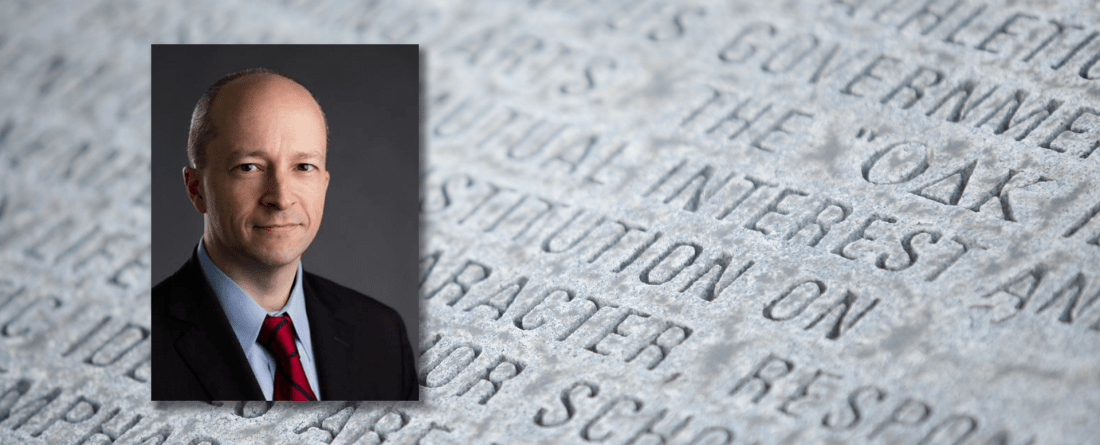
The United States is experiencing a growing social crisis that criticizes nearly all aspects of American society, from national politics to local police departments. As it gained significant momentum in the last year, it is important to consider the root causes of this crisis before the U.S. can reunite and rebuild.
Yuval Levin, director of social, cultural and constitutional studies at the American Enterprise Institute, offered his thoughts on the cause of this crisis and how best to address it last week during his talk for the Norman and Florence Brody Family Foundation Public Policy Forum. Levin posits that current social turmoil in American society is a result of waning confidence in American institutions, which he defines as any social form that structures our interactions and shapes our behavior, such as government, families or media outlets.
“We trust an institution when it seems to have an ethic that makes the people within it more trustworthy,” explains Levin. “However, we lose faith in an institution when we no longer believe that it plays that kind of ethical or formative role shaping the people within it to be trustworthy.”
As Levin sees it, Americans have lost trust in institutions because institutions have failed to impose an ethic on the people within them. Rather than being shaped by their institutions, people now use those institutions as platforms to draw attention to themselves. This makes institutions performative rather than formative. To reform these institutions, those within them must begin to shift back towards a focus on how their role shapes society rather than how the role can benefit them personally.
“‘Given my role here, how should I behave?’- That’s what somebody who takes an institution seriously would ask,” says Levin. “A lot of the trouble that’s facing our core institutions now might be described as a widespread failure to ask that kind of question.”
The impulse to name outsiders as institutional leaders--as seen in calls like “drain the swamp”--stems from this failure, but placing someone with no understanding of the institution’s responsibility and power will not help it reform. Instead, institutional leaders must identify how their current functions hinder societal formation and challenge their institution’s performative members.
“For reform to happen, the people in the institution need to want it to happen, and that means that they have to first see that the ways they're now behaving are a big part of the problem. By making key institutions impossible to trust, we're contributing to a profound and destructive set of social dysfunctions,” explains Levin.
This is not, however, to say that only institutional leaders can drive change. There must also be a collective societal effort to end the performative use of institutions.
“We need to stand behind institutions when they do their job and say, ‘This is what you need to be doing,’” says Levin. “We also need to be willing to confront those same institutions when they fail us and say, ‘This is not what you should be doing.’”



